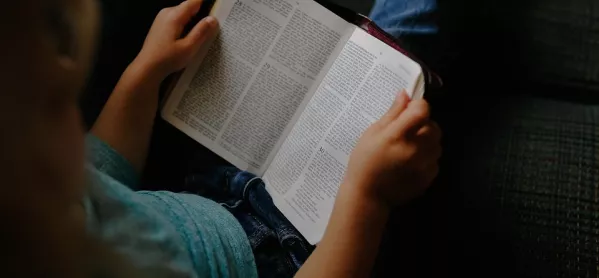Many GCSE pupils have the reading level of a 13-year-old, or even younger, a new study shows.
Researchers say this is potentially hindering their ability to understand exam questions.
And the gap between children’s age and their reading ability grows with every year that they are in secondary school, according to the study of almost one million pupils across the UK.
According to Keith Topping, professor of education and social research at the University of Dundee, the level of difficulty of the books that children read throughout primary school rises sharply each year.
However, once they reach secondary school, the difficulty level of the books that pupils read tends to decrease as they progress through school. This is true for both girls and boys.
‘Appropriate suggestions’
By Year 9, most pupils are reading at least three years below their chronological age. This means that many pupils sitting their GCSEs are reading at the level of a 13-year-old pupil, or younger, the study concluded.
Younger pupils also tend to read more and more books each year, peaking at an average of 36 books in Year 3, according to data from 963,678 pupils from Year 1 to Year 11, compiled by online assessment provider Renaissance.
“By their teenage years, pupils are more likely to take advice from their friends and peers than their teachers and parents about the types of books they should be reading,” Professor Topping said.
“With this in mind, teachers could encourage them to talk more openly about what they are reading, and make appropriate suggestions to their classmates.”
On the reading performance of 29,524 pupils in Scotland, Professor Topping found similar trends: secondary students are not reading challenging enough books.
“If children are not practicing reading at a high enough level, they are likely to have difficulty understanding examination questions,” Professor Topping said.
Want to keep up with the latest education news and opinion? Follow Tes on Twitter and like Tes on Facebook





